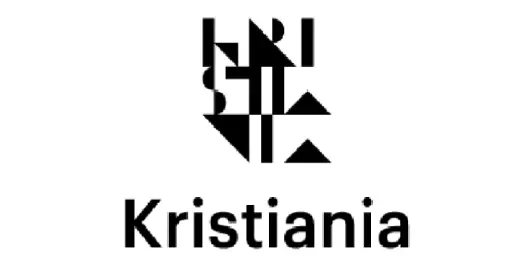Ledig stilling på Universitetet i Oslo
Blindern og Urbygningen (Foto: Wikimedia og Colourbox)
PhD candidate position in Computational Biology and Gene Regulation
Deadline 17.03.2019
Job description
Universitetet i Oslo
The University of Oslo is Norway’s oldest and highest ranked educational and research institution, with 28 000 students and 7000 employees. With its broad range of academic disciplines and internationally recognised research communities, UiO is an important contributor to society.
Centre for Molecular Medicine Norway (NCMM) was established in 2008 and is the Norwegian node in the Nordic EMBL Partnership for Molecular Medicine. NCMM is a joint venture between the University of Oslo, Health Region South-East and the Research Council of Norway. From 2017 NCMM is merged with the Biotechnology Centre of Oslo and now has altogether 11 research groups. The overall objective of NCMM is to conduct cutting edge research in molecular medicine and biotechnology as well as facilitate translation of discoveries in basic medical research into clinical practice.
Applications are invited for a funded 3-year position as PhD candidate (SKO 1017) in the Computational Biology and Gene Regulation Group at the Centre for Molecular Medicine Norway (NCMM), University of Oslo, a Nordic EMBL partner for Molecular Medicine. The research group is led by Anthony Mathelier.
The group was established in 2016 and focuses on gene expression regulation and the mechanisms by which it can be disrupted in human diseases such as cancers. In a nutshell, the group develops and applies computational approaches to analyse in house (through collaborations with groups at the Institute for Cancer Research, where the group is also affiliated) and public multi-omics data to study gene expression dysregulation. Amongst others, our current projects aim at developing new computational methods and tools for (1) improving the prediction of transcription factor (TF) binding sites; (2) prioritizing somatic mutations dysregulating the gene regulatory program in cancer cells; (3) understanding the interplay between TF binding and DNA methylation in cancers, (4) characterizing the landscape of active promoters and enhancers in breast cancer; and (5) assessing the transcriptional impact of transition from diploid to aneuploid cells in breast cancer. See http://mathelierlab.com for further information.
More about the position
We seek an individual highly motivated by the development of computational models and tools dedicated to the analysis of biological data. We are looking for applicants excited about combining life sciences and computation to analyse gene expression regulation. The ideal candidate will be collaborative, independent, with strong enthusiasm for research, and should have experience in statistical / machine learning modelling and computer programming (mainly Python, R, and bash) dedicated to the analysis of large-scale genomics data. Being familiar with gene expression regulation in general, DNA methylation, and TF binding is an advantage. The selected candidate will develop
computational models to study the binding of TF to DNA and how mutations in cis-regulatory regions can trigger carcinogenesis. The position is open to applicants with a background in computational biology/bioinformatics, computer science, or related fields. We offer a stimulating environment with excellent working and social benefits.
The main purpose of the fellowship is research training leading to the successful completion of a PhD degree.
Qualification requirements
- Master degree in computational biology, bioinformatics, biostatistics, or a related field
- Proficiency in programming (Python, R, bash)
- Ability to collaborate with researchers from different fields and at different career stages
- Willingness to be part of a team to share knowledge and skills
- Experience with analysis of genomics data sets
- High drive for science
- Proficiency in English
- Knowledge of eukaryotic gene expression regulation is an advantage
- Knowledge of molecular biology is an advantage
We offer
- salary NOK 449 400 – 505 800 per annum depending on qualifications in a position as PhD Research fellow, (position code 1017)
- a professionally stimulating working environment
- attractive welfare benefits and a generous pension agreement, in addition to Oslo’s family-friendly environment with its rich opportunities for culture and outdoor activities
How to apply
The application must include
- cover letter (outlining motivations, career goals, past achievements, and research interests)
- CV (summarizing education, positions and academic work)
- copies of educational certificates (academic transcripts only)
- list of reference persons: 2-3 references (name, relation to candidate, e-mail and phone number)
The application with attachments (PDF format) must be delivered in our electronic recruiting system, please follow the link “Apply for this job”. Foreign applicants are advised to attach an explanation of their University's grading system. Please note that all documents should be in English.
Formal regulations
Please see the guidelines and regulations for appointments to Research Fellowships at the University of Oslo.
According to the Norwegian Freedom and Information Act (Offentleglova) information about the applicant may be included in the public applicant list, also in cases where the applicant has requested non-disclosure.
The appointment may be shortened/given a more limited scope within the framework of the applicable guidelines on account of any previous employment in academic positions.
The University of Oslo has an agreement for all employees, aiming to secure rights to research results etc.
Contact information
Inquiries about the position can be directed to group leader Anthony Mathelier: anthony.mathelier@ncmm.uio.no
Inquiries about application/how to apply can be directed to HR-adviser Nina Modahl: ninam@ncmm.uio.no
Apply for this job














